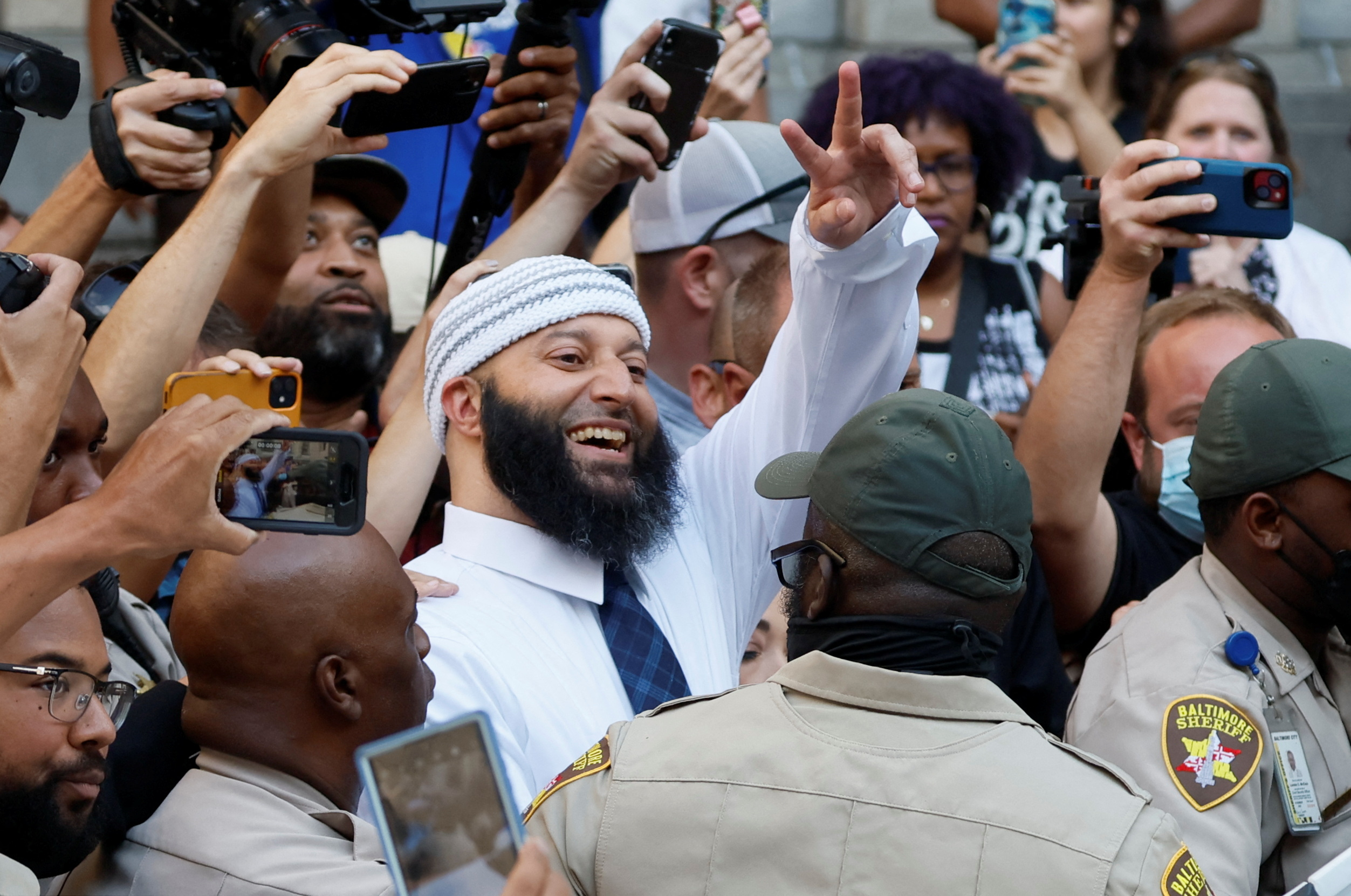Maryland Supreme Court hears arguments on Adnan Syed case
A Maryland appeals court in March reinstated Syed's murder conviction.
The Maryland Supreme Court heard oral arguments Thursday on the conviction of Adnan Syed in the murder case that was the subject of the hit podcast "Serial".
Syed spent 24 years fighting charges that he'd killed his former girlfriend in 1999. Last year, a judge vacated Syed's conviction for the murder of Hae Min Lee.
Young Lee, the brother and legal representative for Hae Min Lee, filed an appeal arguing that his rights were violated because he wasn't given sufficient notice to a hearing that helped to vacate Syed's conviction.

A Maryland appeals court in March reinstated Syed's murder conviction after finding that the lower court violated the victim's family's right to attend a hearing on vacating the conviction. An appellate court panel voted 2-1 to reinstate the conviction, according to a court filing, saying "the circuit court violated Mr. Lee's right to notice of, and his right to attend, the hearing on the State's motion to vacate."
Within the first minute of arguments on Thursday, one of the justices asked if the outcome would have been different if Lee had appeared in court at last year's hearing. Lee attended last year's vacatur hearing virtually, but wasn't able to testify under oath.
Syed's lawyer, Erica Suter, argued Thursday a victim does have a right to be notified of court proceedings but "does not have a right to be heard" and noted that Lee was able to participate in the hearing virtually. She also argued that Lee's appeal was moot because Syed was not charged again by the prosecution after the conviction was vacated.
Lee's attorney, Ari Rubin, argued his client's rights were violated because he was given less than one business day's notice of the court proceedings to travel across the country and was unable to be heard during a key hearing in the case.
State of Maryland attorney Derrick Simmonsen told the court that the State's Attorney's Office for Baltimore assumed that Lee didn't want to appear in person.
When a justice asked if the argument was about the lack of notice or quality of notice, Simmonsen said it was the quality and that the right to appear remotely isn't the same as appearing virtually. He said Lee had a right to address the court but not to present evidence in the case.
The Maryland Supreme Court will now determine whether to potentially send Syed back to prison or throw out his conviction. A ruling in the case is not expected until later this year.
Despite his conviction being reinstated, Syed has remained free since September 2022.
"We're hoping that in the end, we'll have a chance to do justice -- not just for Hae's family, but for our family as well," Syed told reporters outside the courthouse following Thursday's oral arguments.

Noting the possibility of his return to prison, Suter told reporters that they're "hopeful that the justices will choose to leave Adnan where he is, where he belongs, with his family."
David Sanford, one of the lawyers for Lee, told reporters he's "confident" that the Supreme Court of Maryland will find that Lee's rights were violated.
"The Maryland Constitution provides that victims be treated with dignity, and respect and sensitivity. Those rights were denied as well here," he said.
When asked what the next steps might be in the case, Sanford said they would go to the state legislature for change if they do not get the ruling they are seeking.

Syed, who is now 42, had been serving a life sentence for more than two decades -- more than half his life -- since his arrest in 1999.
He was just 17 when he was convicted of first-degree murder, robbery, kidnapping and imprisonment of Hae Min Lee in 2000.
He has maintained his innocence and denied any involvement in Lee's death.
Judge Michelle Phinn ordered Syed's release in September 2022, asking for his shackles to be removed after listening to the state and the defense make arguments.
She said that "in the interests of fairness and justice," Syed should be released on his own recognizance after finding that prosecutors failed to turn over evidence that could have helped his trial in 2000 and after new evidence was discovered that could have affected the outcome of his case.
The prosecution admitted they had failed to turn over evidence for two possible suspects who were not named or charged in the case.
The state's attorney for Baltimore moved to vacate his conviction, freeing Syed from prison before an appeal from the Lee family was decided.
Syed's lawyers have argued that Young Lee's complaints "became moot" when prosecutors dropped the charges against Syed on Oct. 11, 2022, ending the criminal case against him.




